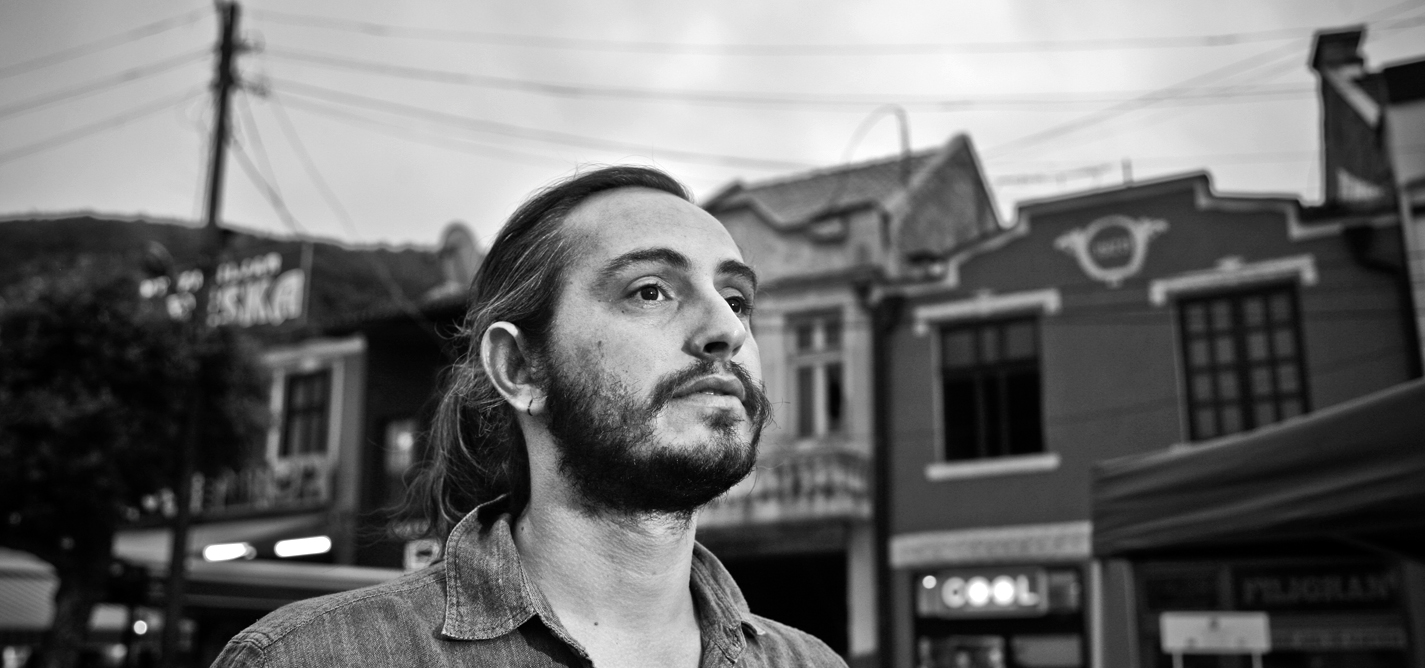Bosnian artist Lana Cmajcanin and her Kosovar colleague and friend Alban Muja often meet to discuss potential collaborations in artworks — either in Belgrade, Vienna or elsewhere, away from Sarajevo and Prishtina. The strict visa regime between Bosnia and Herzegovina (BiH) and Kosovo leaves them with no other choice.
The lack of freedom of movement between their respective countries comes up frequently in their conversation; it will also be the central point of their new project, an installation which they have given the working title, “The Kiss.”
“The inability to meet on the geographical territory of one of our two birth countries is giving us only one solution — to meet at a third location,” says Cmajcanin. “This ‘third place’ is the space we are interested in examining within this project.”
BiH remains the only former Yugoslavian country — aside from Serbia — that still does not recognize Kosovo. While Kosovar citizens can, as a result of the Kosovo-Serbia dialogue, travel to Serbia with only their ID cards, in recent years BiH has exercised a strict visa regime for Kosovar citizens and has only recognized Kosovo passports since 2012.
BiH had introduced a special travel regime for Kosovars in 2004, but after Kosovo declared its independence in 2008 — and the subsequent expiration of United Nations Mission in Kosovo passports — it did not immediately recognize Kosovo-issued documents, making entry for Kosovars significantly harder; the Serb-dominated entity of BiH, Republika Srpska, refuses to allow recognition of Kosovo, which in 2014 took visa reciprocity measures for Bosnian citizens.
Art knows no borders
“The Kiss,” is planned to take place on the plateau in front of the Serbian Parliament in Belgrade as an allusion to Slobodan Milosevic’s regime during the ’90s, the consequences of which continue to affect communications between the former Yugoslavian countries.
“The project touches the problematic on both a political and a very personal level through our experiences during the 1990s,” Cmajcanin noted. “Locations such as the Parliament in Belgrade will be alternated into our intimate spaces.”
Discussing the project, Muja says that “The Kiss” will show a meeting between friends while simultaneously showing the lack of communication between Kosovo and BiH.
“The idea is to meet somewhere in the air where the kiss will happen … the kiss is a metaphor between friends, artists and communities. The idea is to show that you are close and far at the same time,” says Muja. “We decided to do it in the air, because we believe it doesn’t belong to anyone.”

Alban Muja. Photo: Majlinda Hoxha.
Citizens of BiH and citizens of Kosovo are required to visit a third country in order to apply for a visa to visit one another. BiH citizens who want to travel to Kosovo need to travel to Tirana or Zagreb to apply to the Embassy of the Republic of Kosovo. Meanwhile, citizens of Kosovo need to travel to Skopje or Podgorica to BiH embassies that are authorized to issue visas to holders of Kosovo passports, and only after receiving approval from BiH’s Ministry of Foreign Affairs to apply for the visa.
“Citizens of both countries, including artists, are paying a high price for the consequences of current politics and the politics of the ’90s,” says Cmajcanin.
“With ‘The Kiss,’ we are advocating a social role for artists and the inclusion of real life in art. As we know, art has strong potential to become a channel to make narratives visible and present. We are interested in exploring how we can contemplate and produce a space for open, critical and engaged discussion about our socio-political realities and what can be done to advance them.”
While the governments of Kosovo and BiH are not showing any willingness to bring visas to an end, it is only activists and artists who are calling on their governments to change their visa policies; just as Muja and Cmajcanin are attempting to raise awareness about the restrictions on freedom of movement, so other individuals from the cultural sphere have been trying through the years to make this problem more visible.

Lana Cmajcanin. Photo: Almin Zrno.
“Despite the fact that it is hard to find examples of collaborations, there are still a few,” says Cmajcanin. “Definitely, it is far from enough and it should be widely extended, but what it’s telling us is that the will and the necessity for communication are present; they exist and they’re strong enough to succeed sometimes in penetrating through this impossible labyrinth.”
Muja himself experienced the harsh bureaucracies of visa applications when he traveled to BiH. In 2013 he had a personal exhibition within a Swiss culture program. In the same year he also participated at the Konjic Biennale of Arts.
“For all these projects I needed to have official invitations from officials, and go many times to Skopje,” says Muja. “In order to go to Bosnia you need at least ten hours. You need to either fly through Vienna or take the bad road … there isn’t a worse feeling than passing the border. All the interrogation, the questions. That’s why lack of freedom and all these obstacles have made life very difficult for many people, and it’s easier to get an American visa than a Bosnian one.”
But it is not only the Bosnian side which creates problems when it comes to visa issues. Jeton Neziraj, a Prishtina based playwright, organizes an annual poetry festival as part of his production company “Qendra Multimedia.”
He recalls how one of last year’s festival guests, a Bosnian poet, was stuck for a long time at the Kosovo Embassy in Zagreb as a result of bureaucracies.
“As an artist and citizen of this country I cannot accept this,” says Neziraj. “I cannot accept that a citizen of Bosnia, or of any other place, goes through unimaginable bureaucratic procedures in order to visit Kosovo. Other arguments don’t interest me.”
He is among a number of Kosovars who have been involved in the many collaborations with the Bosnian cultural scene, with his organization continuously hosting authors and poets from BiH.
In 2011, Neziraj’s play “The Demolition of the Eiffel Tower” was part of the international theatre festival “MESS,” and premiered at the Sarajevo War Theater (SARTR). In the position of artistic director of Kosovo’s national theater, he also collaborated with the Bosnian theater director Dino Mustafic. The latter directed “Rock n’ Roll,” one of the most popular shows on a Kosovo stage since the war.
“Dino of course wasn’t invited to Kosovo as a ‘Bosnian director,’ but as ‘good director,’” says Neziraj. “I consider regional collaborations to be very important, firstly because they expand the possibilities of ‘artistic quality’ and also for the fact that they have an important impact in easing inter-ethnic tensions in the region. In the case of Bosnia and Herzegovina, such collaborations are especially necessary.”
Neziraj and Mustafic collaborated together for the theater shows “Gjenerali i Ushtrise se Vdekur” (“General of the Dead Army”) which premiered in Skopje in 2009, and “Patriotic Hypermarket,” premiered in Belgrade in 2011.
Earlier this year, Mustafic — with a cast of Bosnian and Kosovar actors — directed a performance called “Tude srce ili Pozorisni traktat o granici” (“Someone Else’s Heart: A Theatrical Treatise on Borders”), which was premiered at SARTR and explores the feelings of humiliation and isolation due to the suspension of freedom of movement and long waits in front of embassies.
For Arban Mehmeti, who specializes in cultural diplomacy, the lack of good diplomatic relations between Kosovo and BiH makes the cultural sector and NGOs the only actors with open communication channels between the two countries and societies.
“The cultural sector can play an important role, not only in keeping alive relationships between two societies,” says Mehmeti. “It also plays a crucial role in breaking prejudices and changing for the better the image of the other.”K



